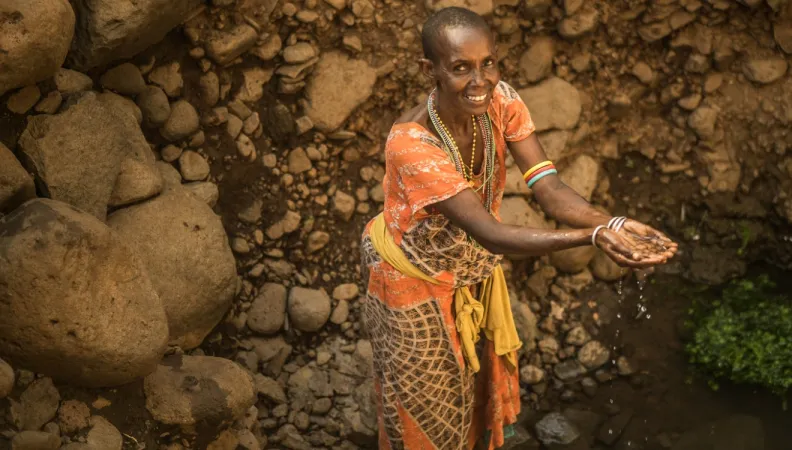Share the page
AFD in Kenya: Stepping in to Shore up Water, Health and Infrastructure
Published on

With Kenyan President Uhuru Kenyatta’s visit to France in October, four agreements were signed, not only to provide a major response to the current health emergency, but also to shore up infrastructure, transportation, and water and sanitation.
We find out more with Ghislain de Valon, AFD’s Country Director in Kenya.
Covid-19 Emergency Response
The agreement includes a concessional loan of €30 million. What will this cover?
Ghislain de Valon: What was crucial was not only the support itself, but the speed with which it was delivered.
AFD’s support to Kenya’s Government went through an existing and specific tool. To respond to the Covid crisis and to the urgent budgetary, health and sanitary needs that have resulted from it, the existing support agreement was amended to speed up the usual process and avoid lengthy formal approval procedures. The amendment was passed to increase the existing public finance management support by €30 million, and to allocate funds to urgent health and sanitary needs.
Kenya’s Ministry of Health had highlighted budget shortfalls and high-priority programs to be financed, as well as overall health needs, including the provision of bulk liquid oxygen for patients’ treatment across the country; technical assistance; the procurement of manual test kits and the financing of prevention campaigns.
Water and Sanitation
Prior to AFD’s involvement in Kisumu, about 50% of the population had little or no access to running water, and only 8% of the residents benefited from a continuous water supply. What has AFD’s response been?
GV: Indeed, few people had running water in their taps. Residents of Kisumu struggled to get clean water at a fair price – not a sustainable situation for Kenya’s third biggest city, with an expanding population and health problems related to water scarcity.
AFD has focused on the urban water supply in cities like Nairobi, Mombasa - and Kisumu, where AFD has been working in water and sanitation since 2000. The sector has suffered from inadequate investment, a lack of maintenance and poor infrastructure – much of it in too dilapidated a state to meet the demands of a rapidly growing urban population. The whole network needed to be overhauled.
Following our actions in Kenya’s water sector over the years, we have come to understand that a sustainable water supply also depends on dealing with “Non-revenue water.” That is, water produced by the utility company for which – due to leakages, theft or metering inaccuracies – the company is not collecting revenues.
Roads and infrastructure
Kenya’s roads were also a priority. Why?
GV: The road network in Kenya has been expanding progressively over the years, but at the same time, many roads have fallen into a state of disrepair due to lack of maintenance.
Realizing there was an urgent need to secure financing, the government established the Roads Maintenance Levy Fund (RMLF), which comes from the sale of fuel. However, with such a backlog, the fee was not enough, and funding partners such as AFD stepped in.
The new rural roads project financed by AFD has helped restore close to 2,000 km of roads, using labor-based methods. This means that local laborers carried out most of the work, with only a minimum mechanized, thus creating substantial employment in the region.
Targeting six marginalized central and northern counties, this project will open up access to markets, schools, health centers and government services, while improving the mobility of goods and people in and out of the region.
